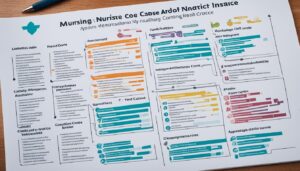As a Registered Nurse, are keeper of your patients’ life. Still, even the most cautious specialists can encounter the opportunities that can negatively affect their work. In Canada specifically, 75% of the registered nurses have been involved in a liability claim at one time or the other. In the current world, people especially the nurses should consider taking liability insurance. It provides the legal/business protection of cash or funds against legal concerns or claims. The areas to be covered in this article include the following; what is liability insurance for nurses, need for liability insurance for nurses, types of liability insurance for nurses etc. In the end, you will have learnt ways on how to safeguard your career.

Table of Contents
ToggleKey Takeaways
- Liability insurance is a key component in the professional practice of registered nurses in Canada based on the findings of this study.
- There are various categories of liability having in mind professional liability insurance and general liability insurance to mention but a few.
- This is the case because practice, specialty and location can influence the costs of liability insurance premiums.
- Selecting the right plan for liability insurance is very important to make sure that an individual gets full protection of his or her financial losses.
- Currently liability insurance can act as a protecting shield to the nurses, financially as well as making them more confident in their work thus ensuring that they offer their best to the patients.
Understanding Liability Insurance for Registered Nurses
Essentially quality nursing is a vital component of healthcare because it is a practice that is performed by a registered nurse. This is a profession and you have opportunities but with opportunities come associated risks. These risks are avoided by having what you call liability insurance.
What is Liability Insurance?
Liability insurance protects the nurses from financial and legal troubles in case a certain claim is brought against them. It expenses in legal defense, or in reaching an agreement or decision when a case goes to trial. This way, the success of strategies announced by the administration will not be hindered because nurses, who spend most of the time caring for patients, will not interrupted by financial troubles.
Why Nurses Need Liability Coverage
Risk for example is always on the rise when it comes to medication and patient’s fall are likely to be witnessed among the nurses. These can cause legal and financial issues. Criminal action and violence Nurses get legal defense through their liability insurance that secures their profession and enables them to deliver quality health service. A large number of healthcare facilities and employers desire nurses to have their individual legal responsibility insurance. This all illustrates that nurses are not in their profession for a joke and are willing to face the responsibilities that come with it.

Types of Liability Insurance for Nurses
Mandatory to professional nursing practice is liability insurance. In protecting of nurses and the patients, it also plays a major role. Nurses can get this insurance whereby they can work without having to worry about money or problems with the law.
Registered nurses should understand about the kinds of liability insurance exist in the different fields. There are two main kinds: PLI and GLI are the other counterparts of professional indemnity insurance and public liability insurance, respectively.
Professional Liability Insurance for Nurses
There is professional indemnity, which is also called malpractice, and this protects nurses from any allegations of negligence in their work. This reimburses for legal expenses and awards if a patient files a complaint due to a negligent nurse’s actions.
General Liability Insurance for Nurses
Nurses are protected from injury or damage which may happen in their productive day to day activities through general liability insurance. This ranges from a patient falling in the nurse’s office or a patient’s property is damaged. It is important for the nurses to have professional liability insurance but the general liability insurance also supplements the nurses’ coverage and also provides a sense of securities.
| Type of Liability Insurance | Coverage Provided |
| Professional Liability Insurance | Protects against claims of negligence, errors, or omissions in professional nursing duties |
| General Liability Insurance | Covers claims of bodily injury, property damage, or personal and advertising injury outside of professional nursing responsibilities |
Based on several crucial points, registered nurses’ liability insurance can vary in its prices. Ideally, the nurses should have knowledge in these aspects. This also assists them in being able to make sound insurance decisions and therefore acquire the right policy.

Factors Influencing Liability Insurance Costs
The employee’s insurance costs greatly depend on the type of facility a nurse is employed at. Hospitals or emergency rooms are considered as high risk areas and nurses serving in such places have to pay more for insurance. The ones in the low-risk categories, such as clinics or private practices, pay less.
Practice Setting and Specialization
However, nurses in high-risk specialties such as anesthesiology nurses or those working in the critical care department will be expected to pay more. This is so because their operations are likely to involve them in rather risky contracts which expose them to litigation.
Geographic Location
The institution or organization a nurse is employed also influences aspects such as how much they pay for insurance. It depends with the state or region of the country. The insurers may charge higher premium to nurses working in the region likely to be affected by more medical malpractice claims or the area with higher cost of living.
| Factor | Impact on Liability Insurance Cost |
| Practice Setting | Nurses in high-risk environments like hospitals tend to have higher insurance premiums compared to those in lower-risk settings like outpatient clinics. |
| Specialization | Nurses specializing in high-risk areas like anesthesiology or critical care may pay higher insurance rates due to increased liability exposure. |
| Geographic Location | Insurance rates can vary significantly based on the state or region where the nurse’s practice is located, with higher-risk or higher-cost areas generally having more expensive coverage. |
Much of this information assists registered nurses in choosing the right liability insurance. They may obtain medical coverage that satisfies the required standards and the amounts they are willing to spend.

Liability Insurance for Registered Nurses: Key Coverages
Registered nurses benefit greatly from liability insurance because it covers several hazard that they encounter. It comprises of the professional liability insurance and general liability insurance.
Professional Liability Coverage
A critical insurance product for nurses to have is professional liability commonly referred to as medical malpractice insurance. It provides for the indemnification of claims and lawsuits on their operations and decisions. Negligent harm, failure to do enough in nursing care and professional mistakes are in a way compensated for with legal defense and indemnified. This coverage protects against claims like:
- Failing to monitor a patient’s health or perhaps not watching over them keenly enough.
- Mistakes when it comes to medication among several concerns about making mistakes, particular emphasis should be paid to the mistakes that have to do with medication.
- Failing to diagnose or treat.
- Patient gossiping or privacy
General Liability Coverage
The liability insurance for nurses also includes general liability umbrella. This shields them from lawsuits of physical harm or property loss that is not a result of their employment. This coverage can help with things like:
- Tripping and falling in a care environment
- Interfering with patient’s belonging.
- Damage from medical equipment or from supplies with which the patient comes in contact
Learning about these coverages assists the nurses to shield their profession and their pockets when they receive a claim or a lawsuit.
Liability Risks Faced by Registered Nurses
The primary focus of a registered nurse is patients’ care and health management. This job has hazards; one can make a medication error or even let the patient fall. Such risks to need to be established to prevent them and guard not only ourselves but patients too.
Medication Errors
Medication errors can occur in a process of prescribing, preparation, dispensing or administering a drug. These mistakes are not only inconveniences for patients but can cause severe issues for the patients ranging from minor side-effects to life threatening complications. It is for this reason that nurses that are liable to make such mistakes may be held legally responsible for any loss on the patient’s side. They might also receive action against them from the employer or the licensing board.
Patient Falls
Falls are equally a big issue to the nurses since they are always close to the patients most of the time. Patients may fall due to factors such as confusion, weakness, and various hazards that prevail in their vicinity. Any area that the nurse is in requires scans for key indicators that may point towards a fall or the presence of safety tools or the creation of a safe space.
The same way if the patient falls and gets injured the nurse would be at fault for not noticing this and also not responding keenly enough. The best course of action in such cases is insurance for the nursing liability. It includes expenditures on lawyers and fines or awards that might have been paid to the victims. All these losses are kept at bay by this insurance and the good name of the nurse is safeguarded. In order to manage the risks of nursing, efficient amount of liability insurance should be secured first of all.
| Liability Risk | Potential Consequences | Liability Insurance Coverage |
| Medication Errors |
|
|
| Patient Falls |
|
|

Choosing the Right Liability Insurance Plan
When choosing the liability insurance plan, it is crucial to be aware of the choice as a registered nurse to cover the work and legal incidents. There are some essential factors that you have to consider to get an option that will work for you best. To begin with, consider the actual policy and ‘the scope of its coverage in terms of costs. Ensure the plan meets this requirement to ensure you are well protected when you are legally involved.
Also within the policy, look at the deductible and anything excluded as a way of finding out what is included. One should also consider rating and solvency of the insurance company, however, it is significant in case of less popular offers. Focus on companies that have good reputation in dealing with claims and offering their services to the clients. Asking for quotes from different companies is actually a good way to find a good but cheap plan. Here are some tips to help you pick a liability insurance plan:
- Evaluate your role and the risk aspects pertaining to nursing – Consider the kind of nurse you are, your subspecialty, and the dangers posed to you.
- Select the desired limit of coverage for a particular lawsuit – Reflect on what a particular lawsuit might be going to cost you and then buy a policy that can cover these expenses.
- Policy exemptions and co-payment – Find out the circumstances that this policy will not cover and what you must part with if you want to access the policy.
- Get several quotes from some good liability insurance companies to be able to find one with the best price.
- Ask your nursing group or seek advice from other experienced nurses as they will recommend appropriate insurance companies and the policies to consider.
In thinking these things and applying these tips, registered nurses may select the right liability insurance plan. In this way they can safeguard their work, and afford themselves a certain amount of safety while carrying out their day-to-day duties.

Liability insurance for registered nurses
Every day you go to work as a registered nurse, you are at risk. Negligent areas such as medication error or fall of a patient may cause the individual or the institution to fall on the wrong side of the law. That is why liability insurance for registered nurses is important to safeguard your profession and currency. However, insufficient liability coverage for nurses can drain one absolutely if involved in a law suit. Law suits and legal expenses are not unusual and can reach tens and hundreds of thousands of USD.
Legal protection insurance for nurses assists in protecting your career and your cash. Maybe, they should have better insurance stock as many of them work in high risk environments such as ERs or ICUs. They must understand why one needs to have appropriate insurance in relation to their careers and money.
The liability insurance of nurses protects you in case someone takes a legal action against you. This reimburses for legal defense, payments for claims, and verdicts. When registered nurses have the appropriate coverage for liability, they do not need to worry about losing all that they have with the compensation for patients they harm intentionally or accidentally.
Benefits of Liability Insurance for Nurses
It is challenging to be a registered nurse in the healthcare fraternity since the legal factors are never far behind. Thus, liability insurance provides legal safeguards and safety for nurses. This makes it possible for them to attend and produce quality health care to their clients. It is now appropriate that we discuss the reasons why liability insurance is essential to nurses.
Financial Protection
Nurses’ liability insurance provides excellent financial coverage to the practitioners. If the occasions were a malpractice claim or lawsuit, then cost of legal fees and the damages are very massive. Liability insurance for nurses help pay for these costs and do not cost the nurses their personal money. This is important for a planner as it helps providing the basic financial buffer of nurturers the liability insurance.
Peace of Mind
Nursing is an enjoyable career through which one is compensated through the reimbursements for the stress that comes with the profession legally. For the nurses, getting liability insurance relieves them. Organizations that have implemented English language support software are able to devote their time to attend to their patients and leave worrying to their attorneys.
He has central theme that with strong coverage, nurses feel more confident and secure in their employment thus an interpersonal balance or satisfaction results to upgrade the standard of some care. To sum up, it can be concluded that the purpose of obtaining the liability insurance for nurses is evident. It provides funding to businesses and sets up their shield. Liability insurance should be considered by nurses because it assist in delivering quality care and safeguarding a nurse’s profession and individual welfare.
Employer-Sponsored vs. Individual Liability Insurance
In regard to the insurance, being a registered nurse, you can have employer sponsored or individual malpractice insurance. Both have their advantages and disadvantages, or, in other words, there are things to consider concerning every one of them. Employer sponsored insurance common is normally a basic plan and you may have little or no say as to what coverage plan is chosen. While on the other hand, one can be able to adjust it and compare its limits to individual insurance. However, it also takes more money individually.
In this regard, you should consider where you practice, your area of specialization and the dangers that exist. Nurses working in the high-risk areas or fields may require an individual insurance cover for the utmost protection. The nurses in safer settings might not mind the package that their employer is willing to provide. One understands what they are willing to take and what they want by comparing employer-sponsored insurance with individual insurance. Out of the two evils you take the lesser evil as you compare the merits in that which you choose. The above way will protect you more and ensure you offer just the best care to the patients you deal with.
FAQ
1. What is Liability Insurance?
Liability insurance ensures people or businesses are shielded from monetary and legal concerns if a given individual files a complaint or takes them to court. For nurses, it provides details concerning errors, mistakes, and all the matters concerning their working station.
2. Explaining the Need for Nurses to Have Liability Insurance?
Essentially, nurses are at risk of making a wrong medication prescription, patients falling for instance and so on. That is the reason why liability insurance assists them. It involves expenses of legal actions, and compensation for losses resulting from these blunders.
3. What Choices Do the Nurses Have in Concerning Liability Insurance?
Nurses can get two kinds of liability insurance: refereed and popular. Professional denies errors in his or her working. General specifies that they cover injuries or its damage while they are at it.
4. What constitutes the main factors that determine the cost of the liability insurance for nurses?
The premiums for insurance depend on the place of work, the specialty of the nurses, and their residential areas. Nurses, who work in the high-risk operational subfields or departments, could contribute a bit more.
5. What are the main things protected under the liability insurance for nurses?
This insurance provides for the legal defense and/or compensation or any other costs arising from claims or occurrences. The specifics depend with the policy and provider. Liability Risks of Registered Nurses A registered nurse is a professional who takes care of the health of the people, and one way of providing health care is through administering treatment to the patients of the healthcare center. Risk is equally present for nurses in the form of wrong administration of drugs, patients experiencing falls and other mishaps. These can cause claims and legal issues A/p by: Luckily, there are ways to avoid the completely unenviable position and the key is good insurance.
6. What Liabilities That Nurses Have to Meet Before Choosing Their Insurance Plan?
When choosing an insurance plan, nurses should consider the policy limits, the amount of money they have to pay before the insurance begins to pay, and what operations the policy does not cover and how much they will have to pay for the services. They should find one that deploys to their work and at the same time shields them from certain risks.

